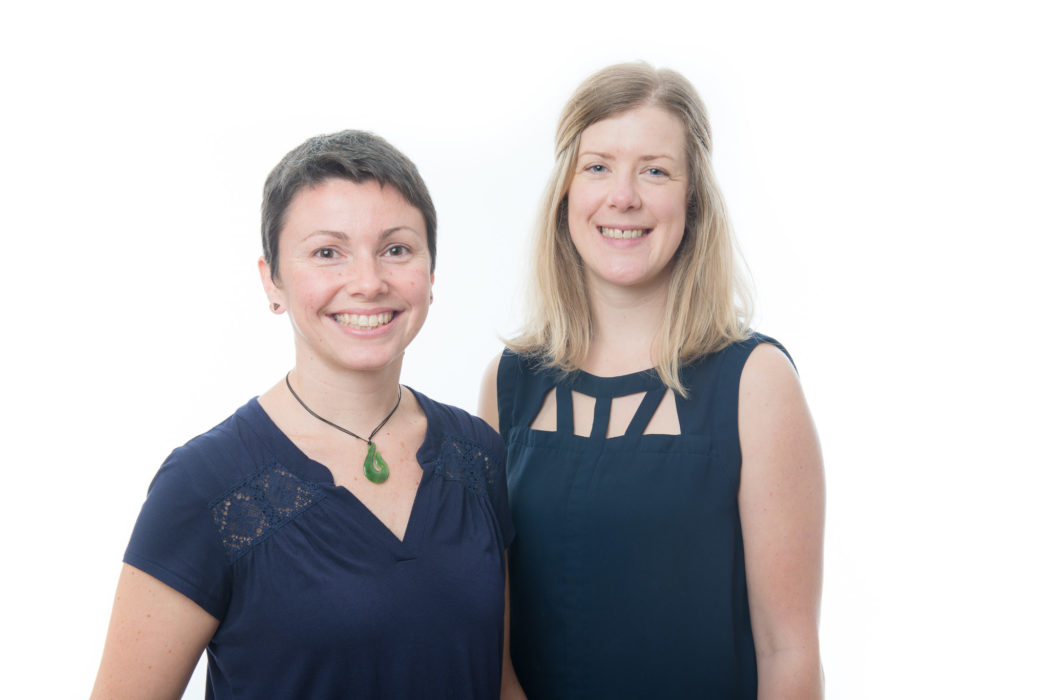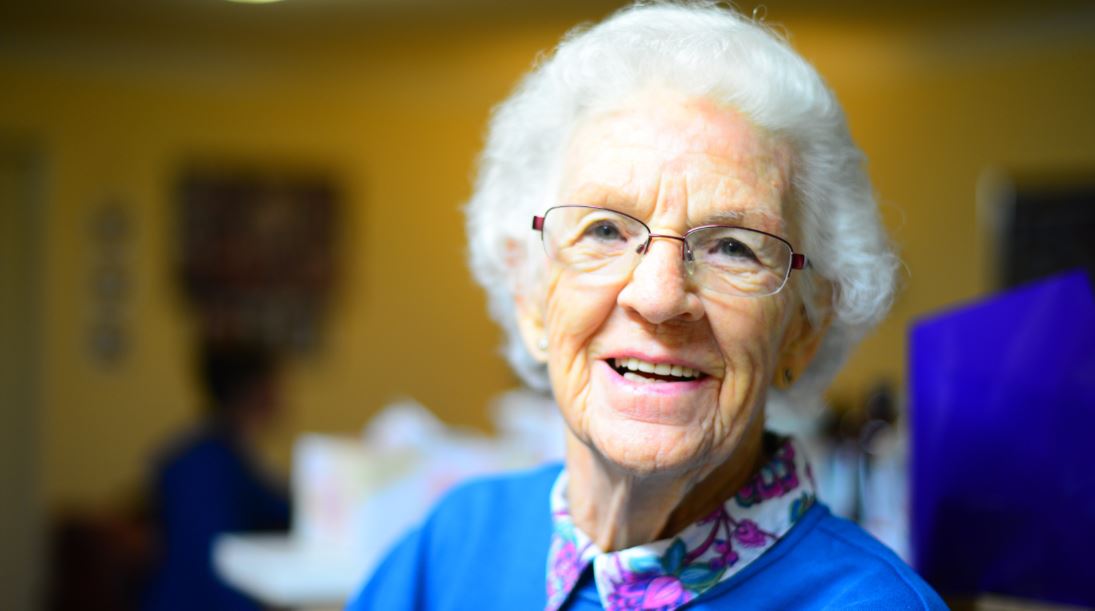Personal Care Assistance (PCA) Assessments and ICBC: Getting the Support You Need after a Motor-Vehicle Accident
Car accident injuries can make even simple, daily activities difficult. You may need help with housekeeping, meal preparation or personal tasks like bathing or getting dressed. Under ICBC’s Enhanced Care you may be eligible for a personal care assistance (PCA) benefit. A Personal Care Assistance (PCA) assessment helps ICBC determine your needs and eligibility for personal care assistance. The PCA assessment and report helps you get the right level of support for recovery and independence.
What is a PCA Assessment?
A Personal Care Assistance (PCA) assessment is conducted by a qualified Occupational Therapist to looks at a person’s functional abilities and identifies any limitations with daily tasks due to accident-related injuries. The results of the assessment help ICBC decide if they will fund personal care services.
Importance of a PCA
For individuals recovering from injuries, a PCA assessment is often the only way to access the support they need. Without it, many people struggle with essential daily activities, slowing their recovery and impacting their quality of life. The assessment helps you get the right level of additional support, whether from professional caregiver assistants or from compensated family members.
Occupational Therapists Conduct PCAs
Occupational therapists (OTs) have the needed experience and training to assess a person’s ability to perform daily activities. Through a PCA assessment, an OT looks at accident-related limitations and makes recommendations for the level and type of care required. The OT gathers information through an in-home visit, documenting the results in the PCA Assessment Report and Scoring Sheet, which are then submitted to ICBC for review and benefit determination.
The PCA Assessment Process with an OT
What Happens During the Assessment?
The OT will do the PCA assessment in the client’s home to assess their ability to manage daily tasks. The occupational therapist will:
- Review medical history and current challenges.
- Observe how the injury affects self-care, mobility, and household activities.
- Identify specific areas where you need help.
- Discuss potential solutions and support options.
The PCA Report
Following the assessment, the OT provides a detailed report to ICBC outlining:
- The extent of the individual’s functional limitations.
- The recommended type and duration of personal care assistance.
- Suggestions for professional caregiving services or compensation for family caregivers.
ICBC uses this report to determine what level of support they will approve for funding.
How to Get a PCA Assessment
ICBC May Fund This Assessment
If you require assistance with daily tasks due to accident-related injuries, ICBC may cover the cost of a PCA assessment. However, ICBC must approve funding before you start working with an OT and make a determination of benefit before authorizing any personal care assistance.
Steps to Get Approval
- Contact Your ICBC Adjuster – Explain your difficulties with daily tasks and request a PCA assessment by an occupational therapist.
- Get a Referral – Your doctor, physiotherapist, or other healthcare provider may recommend an PCA assessment to support your request.
- Complete a PCA Assessment with an Occupational Therapist – Once approved, an OT will conduct the assessment and submit their findings to ICBC.
Get Started Today
If you or a loved one are struggling with daily activities after a car accident, a PCA assessment can help secure the support you need. At OT Works! our experienced occupational therapists provide thorough evaluations to help you receive the right level of care and support for your recovery.
Contact us today to start your recovery journey.
Email: referrals@ot-works.com
Vancouver: 604.696.1066
Victoria: 250.999.8896
Start Occupational Therapy after a car accident
Get help. Get better. Get well.
Ask for OT for your ICBC claim.

You have been injured in a car accident, and you have not fully recovered. You want to get back to your regular life, but you are not sure how or where to get started. Ask for Occupational Therapy (OT) for your ICBC claim.
Occupational Therapy is fully covered by ICBC.
Occupational therapy can help you put the pieces together that you need to get better. OTs provide individualized care that is specific to you, your injuries, and your life. They listen to you and focus their work on your goals and what is meaningful to you.
We can help you to get back to living your life after a car accident.
How OT can help after an accident
An Occupational Therapist can help you in many ways after a car accident.
We focus on your function and help you perform a wide variety of activities. Whether you’re having physical, cognitive, and emotional difficulties, an OT can help. We see each person as unique and tailor our approach to you.
An Occupational Therapist can help you with activities like:
- Preparing you and your home for your discharge from hospital
- Restoring basic activities, like bathing, dressing, grooming and personal hygiene
- Getting you back to activities like home making, finances, meal planning, community access
- Leisure and recreation
- Getting back to school or work
- Return to driving
Click here to learn how an OT can assist you in different stages of your recovery.
OT is fully covered by ICBC
Occupational therapy is covered under ICBC’s Enhanced Care model. There are no user-fees for OT.
However, OT is not pre-approved like other health professions. To have an OT help your recover, your ICBC claims specialist must approve OT involvement. To get approval, you will need a referral from your GP or a doctor’s note. Talk to your doctor if an OT would be right for you.
If ICBC has already approved funding for Occupational Therapy for you, simply email us the written authorization, and we will assign an OT to assist you.
ICBC must approve OT services before you start with an OT.
Get Started with an OT
After reporting a claim to ICBC, you can ask your ICBC Recovery Specialist for OT. You can also contact our Referrals Team at OT Works! to discuss your situation. You can reach us by phone, email or on our website:
- By phone, at (604)696-1066
- By email, at referrals@ot-works.com
- By sending the referral form to us by email or fax
You need a GP referral (or Doctor’s note) for ICBC to pay for OT services.
What do I need to get started?
You will need to provide some personal information, ICBC claim details, and a GP note.
Your GP note should state the reason for referral and how it’s related to the MVA.
Our Referrals Team will then guide you through the process.
If you are not sure if OT has been approved, our Referrals team will contact ICBC and/or your legal counsel on your behalf to secure funding.
How much does OT cost?
If ICBC has approved OT services for you, our OT services will be fully paid by ICBC. There are no user fees and you don’t have to pay anything out of pocket.
NOTE: ICBC will not pay for OT services that have not been approved. We recommend always getting ICBC approval before starting with an OT. If you are not sure how to get the approval, give us a call and we can help
When can I start working with an OT?
It depends, but our goal is to make the whole process as fast as possible. We always try to assign the best OT that matches your situation and find the right fit for you. It may take some time for the right OT to become available. Our Referrals team will keep you informed during the process and inform you of any wait times.
Who will contact ICBC to get approval for Occupational Therapy?
Our Referrals team and/or your legal counsel will contact ICBC on your behalf to get approval for OT.
Where are OT services delivered?
Our OTs work in the community, and can see you in your home, workplace or in a community setting (park, community center).
We can also offer telehealth if that’s appropriate for your situation.
OT Works! has OTs available in the following areas:
- Lower Mainland: Vancouver, Burnaby, New Westminster, Surrey, North & West Vancouver, Richmond, Delta, Port Moody, Coquitlam, Port Coquitlam, Langley, Maple Ridge, Pitt Meadows
- Fraser Valley: Mission, Abbotsford, Chilliwack
- Sea-to-Sky: Squamish, Whistler, Pemberton
- Sunshine Coast: Gibsons, Sechelt
- Vancouver Island:
- South: Victoria, Esquimalt, Sooke, East Sooke, Saanich, Sidney, Langford, Colwood, Metchosin
- Central: Nanaimo, Parksville, Ladysmith, Qualicum Beach, Port Alberni
- North: Campbell River, Courtney, Comox, Cumberland, Fanny Bay, Nanoose Bay, Union Bay
Are all of your OTs approved by ICBC?
All our OT’s are authorized by ICBC to provide OT services. Occupational Therapists s are university-educated professionals, registered by the College of Occupational Therapists of BC.
Get started today
Ask for OT!
If you are ready to start your rehabilitation after a car accident, ask for OT and contact us today.
Our OTs will be happy to help you getting back to the life you love!
Photo by Daniel Xavier from Pexels
Introducing Karen, Parisa, and Simone: Occupational Therapists
We are thrilled to present the latest additions to our dynamic team: Karen Gill, Parisa Madani, and Simone Mann – occupational therapists at OT Works!
Since joining us between May and July of 2023, they have been delivering exceptional community-based occupational therapy services. Through their dedicated efforts to incorporate daily routines at home, work, and within the community, they are committed to enhancing independence and guiding clients towards their rehabilitation goals.
Karen earned her Master of Occupational Therapy at McMaster University. She is an advocate for a client-centered approach, aiming to empower individuals to engage in meaningful activities encompassing personal care, employment, and leisure pursuits. Karen has successfully assisted clients navigating challenges related to concussion, traumatic brain injury, chronic pain, and mental health concerns such as anxiety and depression. Her knowledge extends to musculoskeletal and orthopedic injuries, as well as mixed diagnoses. Karen extends her support to a diverse clientele, including those with WSBC and ICBC claims, private-paying clients, and individuals with extended health and disability insurance coverage. Fluent in Punjabi and Hindi, Karen serves the Surrey/Langley area.
Parisa, a graduate of the University of British Columbia’s Master of Occupational Therapy program, enriches our team with her valuable background as a Kinesiologist. Her prior experience underscores the significance of active physical therapy for sustainable outcomes. Parisa specializes in aiding clients grappling with musculoskeletal and orthopedic injuries, chronic pain, and mental health challenges on their journey back to the workforce. She extends her guidance to individuals within WSBC, ICBC, private-pay sectors, and those covered by extended health and disability insurance plans. Fluent in Spanish, Parisa serves communities in Surrey, Langley, Burnaby, and New Westminster.
Simone is a dedicated occupational therapist who achieved her Master of Occupational Therapy at Bond University in Australia. She stands out for her compassionate and respectful demeanor, which she combines with innovative, evidence-based interventions tailored to each client’s distinct values and needs. Simone excels in supporting clients dealing with physical injuries, chronic pain management, exposure therapy, and brain injury rehabilitation. With a clientele encompassing WSBC and ICBC claims, private-paying individuals, and those under extended health and disability insurance, Simone brings her expertise to the fore. Fluent in Punjabi and Hindi, she serves clients in Delta, Surrey, Langley, Richmond, New Westminster, and Burnaby.
All our therapists, including Karen, Parisa and Simone, are registrants and in good standing with the College of Occupational Therapists of British Columbia (COTBC).
Get started with an OT
If you or someone you know can benefit from the guidance of a skilled occupational therapist, we invite you to contact us today!
Email: referrals@ot-works.com
Phone: 604.696.1066 ext. 1000.
June is Brain Injury Awareness Month
Every day, 60 people in British Columbia experience a brain injury. Acquired brain injuries (ABIs) can greatly affect people’s lives. They can alter thinking, sensations (including touch, taste, light, sound and smell), language and emotions as well as mobility and physical health.
British Columbia recognizes June as Brain Injury Awareness Month. You can access a list of Brain Injury Associations in the province here.
Occupational Therapy and Brain Injury Rehabilitation
Occupational therapists are equipped to positively transform the cognitive, physical and emotional wellbeing of clients who have experienced concussions and other brain injuries. At OT Works! we strive to keep up-to-date with current and emerging research and clinical evidence surrounding acquired brain injuries. Many of our clients with ABIs have returned to the activities that bring them joy through collaboration with our occupational therapists.
For more information on our brain injury services at OT Works!, please visit the links below.
Meet Mathilde Bleuze & Bronwyn Cormack: Occupational Therapists
Welcome Mathilde Bleuze and Bronwyn Cormack to the OT Works! team. They provide community OT services for individuals with musculoskeletal/orthopaedic injuries, chronic pain, mental health, concussion/traumatic brain injuries and mixed diagnoses. They guide clients in managing their daily activities at home, work and in the community in order to foster increased independence.
Mathilde enjoys thinking outside of the box and supporting clients in their own environments. Originally an OT in France, she has a wealth of experience particularly in return-to-work planning, home safety and seating and mobility. Mathilde serves clients on Vancouver Island, particularly in the Comox Valley region.
Bronwyn finds that private practice allows for a dynamic work environment. She enjoys learning about the different roles people have in their communities. She provides workplace assessments, return-to-work planning and activation, among other services. Bronwyn serves clients in the Sea-to-Sky region, primarily North Vancouver to Whistler.
Like all of our therapists, Mathilde and Bronwyn are full registrants and in good standing with the College of Occupational Therapists of British Columbia (COTBC).
Get started with an OT
If you or someone you know could benefit from working with an occupational therapist, contact us today!
Email: referrals@ot-works.com
Phone: 604.696.1066 ext. 1000.
Concussion Management: How Occupational Therapy Makes a Difference
Increased awareness about concussions, including expanding research, demonstrates the need for occupational therapy in concussion management. Concussions result in functional changes that can affect a person’s participation in social, work or household activities. As experts in function, OTs are well-equipped to assist clients with concussions. OT Works! regularly helps insurers at ICBC and WorkSafe BC, as well as other third-party insurance companies, to assist clients as they recover.
What is a concussion?
A concussion can result when impact to the head, or a whiplash movement, causes the brain to move quickly and abruptly. There are a variety of symptoms that can occur including:
- Physical symptoms: headache, nausea, dizziness
- Cognitive symptoms: decreased attention, slowed response time, memory difficulties
- Emotional/behavioural symptoms: irritability, sadness, anxiety
- Sleep-related: increased sleep, difficulty falling asleep, difficulty staying asleep
There is increasing evidence against the notion that prolonged rest (after the 24-48 hour mark) improves one’s symptoms. In fact, it is important the clients start to gradually return to their activities within the first few days post-injury. The activity level should not bring on or worsen symptoms.
How can an OT help after a concussion?
Occupational therapists support their clients in returning to daily activities gradually and safely. They provide education regarding concussions and explain what a typical recovery looks like. Experiencing a concussion may be alarming to a person with a head injury. OTs can help their clients understand their symptoms and what they can do about them. OTs often review what is can be expected in recovery and provide strategies to return to the things the cleint wants to do.
OTs recognize the unique potential each client possesses. Together, the OT and client can develop an individualized rehabilitation plan. They address the individual client’s concerns and personal goals. For instance, some clients may require gradual exposure to busier environments over a longer period of time if they experience light or sound sensitivity.
OTs also help their clients who have concussions by:
- Reviewing strategies to be active, without overdoing it: energy conservation, pacing and relaxation techniques
- Determining ways to work around or with challenges, ultimately to enable a successful return to work
- Liaising with other healthcare providers and insurers to ensure a timely and thorough rehabilitation
Get started with an OT for concussion management
All of our therapists at OT Works! are certified with the College of Occupational Therapists of British Columbia (COTBC) and have additional training in concussion management. Our approach is based on current concussion science and best practice.
If you or someone you know could benefit from concussion management with an occupational therapist, contact us today!
Email: referrals@ot-works.com
Phone: 604.696.1066 ext. 1000.
Occupational Therapy and ICBC Rehabilitation: A Successful Return to Work and Life
Occupational therapists believe that an essential part of recovering from a motor-vehicle accident (MVA), and related injuries, is being able to participate in the activities that mean the most to people. OTs assist ICBC clients as they re-engage in meaningful daily routines or “activities of daily living” (ADLs). OTs recommend early intervention, but occupational therapy can be beneficial no matter how long it has been since the MVA.
The therapists at OT Works! have extensive experience with concussions, mental health and return-to-work planning. They address their clients’ physical, emotional and cognitive needs and use evidence-based practice to empower them. Each client has a unique treatment plan, tailored to their strengths, interests and potential.
The three case studies show how occupational therapy can make a big difference in post MVA-rehabilitation at various times in the recovery process.
0-30 Days Post-MVA
30-90 Days Post-MVA
90+ Days Post-MVA
Get started with an OT
All of our therapists are certified with the College of Occupational Therapists of British Columbia (COTBC) and have additional training in areas such as mental health, brain injury rehabilitation, home safety and chronic pain.
Contact us if you or anyone you know could benefit from occupational therapy, of if you have questions about an an OT can help after an MVA.
Email: referrals@ot-works.com
Phone: 604.696.1066 ext. 1000
OT and ICBC rehab: Emma’s Drive to Explore
When ICBC asked OT Works! for help, Emma was avoiding driving. Her motor vehicle accident (MVA) increased her anxiety and made time management, memory and attention difficult for her. With her OT, Emma learned to better manage her concussion symptoms and other pain. Equipped with evidence-based strategies, she reconnected with the friends and adventures that mattered to her most.
OT Involvement
Referral: 90+ days after the accident
Services:
- Activation
- Cognitive Rehab
- Driving in the Community
- Return to Work Planning
- Return to Work Monitoring and Support
Introducing Emma
Age: 35
Occupation: Secretarial Administrator
Injuries: Concussion; anxiety; soft tissue Injuries to the back, neck and shoulder.
How OT Helped
Emma relies on driving to get to work and hang out with friends. As a result of her motor vehicle accident, her anxiety increased and she took time off work. She was afraid to be behind the wheel again and so avoided driving. She struggled to manage the daily activities in her life and found that recalling and retaining memories were suddenly difficult for her.
Nicole Chan (OT) and Aman focused on cognitive rehabilitation in order to encourage Emma to reconnect with her pre-accident activities. They developed calming techniques, followed checklists and used memory aids. Nicole also rode as a passenger in Emma’s car while they built up Emma’s confidence as a driver. With a return-to-work plan, developed collaboratively, Emma returned to work full-time. At the time of her discharge, she was already driving her friends on local trips and exploring what our neighbourhoods have to offer.
“Thanks to Nicole and her encouragement and strategies, [I] feel more comfortable and confident driving on the road after my car accidents.”
Emma (OT Works! client)
Contact Us
All of our OTs are university-trained and certified by the College of Occupational Therapists of British Columbia (COTBC). Many of our OTs have additional training in physical OT treatment, mental health, and goal-planning.
Contact us today if you or someone you know could benefit from an OT, or have any questions about how an OT can help after an MVA.
Email: referrals@ot-works.com
Phone: 604.696.1066 ext. 1000
OT and ICBC Rehab: Aman’s Positivity
As a busy, young woman, Aman struggled when soft-tissue injuries a motor vehicle accident (MVA) decreased her ability to work and play. She experienced back pain and mood fluctuations that made it difficult to enjoy the things she used to love like cooking and yoga. With goal-oriented occupational therapy, Aman increased her endurance and transformed her outlook on life.
OT Involvement
Referral: 30-90 days after the accident
Services:
- Activation
- Education
- Goal-Planning
- Pain Management
- External Service Recommendations: Physiotherapy, Kinesiology and Massage Therapy
Introducing Aman
Age: 27
Occupation: Lab Technician and Aesthetician
Injuries: Soft tissue injuries to the back, neck and shoulder; fluctuations in mood
How OT Helped
Aman enjoys cooking, yoga and attending the gym. When soft tissue injuries interrupted her ability to be active, she also struggled with her mood and motivation. At the time that she met Jaclyn Forsythe (OT), she wasn’t convinced that occupational therapy would help her return to the activities she loved.
Jaclyn, equipped with her Masters’ education and variety of experience, recognized that Aman could benefit from OT. Together, they set well-structure goals that were realistic and achievable. She also provided Aman with tools and techniques to manage her pain effectively so that she could reconnect with the activities she enjoyed before the accident. With Melissa’s support, Aman fostered a more positive outlook on life and could manage her injuries effectively.
“It was my first time working with an occupational therapist and I have to say I had a very good experience. I didn’t think I needed one in the first place, but now having experience the service I can see how it has helped me with my injury and rehab. Both mentally and physically.”
Aman (OT Works! client)
Contact Us
All of our OTs are university-trained and certified by the College of Occupational Therapists of British Columbia (COTBC). Many of our OTs have additional training in physical OT treatment, mental health, and goal-planning.
Contact us today if you or someone you know could benefit from an OT, or have questions about how an OT can help after an MVA.
Email: referrals@ot-works.com
Phone: 604.696.1066 ext. 1000
OT and ICBC Rehab: Getting Kim Back on Her Feet
ICBC’s Hospital Discharge Program requested an occupational therapist to assist their client, Kim. She had a fractured knee from a motor vehicle accident (MVA) which made it difficult to walk. Kim was concerned that she wouldn’t be able to get around like she used to. But by building a rehabilitation plan with occupational therapy and other services. Kim developed the confidence and strength to get out, walk more and socialize with her friends like she used to.
OT Involvement
Referral: 0-30 Days after the accident
Services:
- Assistive Technology
- Home Safety Assessment
- Hospital Discharge Planning
- External Service Recommendations: Physiotherapy, Kinesiology, and Massage Therapy
Introducing Kim
Age: 84 years old
Occupation: Retired, active community member
Injuries: Right tibial plateau fracture with Open Reduction Internal Fixation (ORIF)
How OT Helped
After her accident, Kim wanted to remain active in her community. She sustained a fractured knee and was using a wheelchair at the time that Melissa Ferguson (OT) began working with her.
Melissa planned Kim’s discharge from hospital. When Kim returned home, Melissa had already ensured that her home was safe and accessible considering her injured knee and mobility constraints. Since Kim is a yoga enthusiast, Melissa encouraged her to keep building her strength that way. They also focused on increasing Kim’s walking endurance. She worked with a physiotherapist, kinesiologist and massage therapist as Melissa recommended.
As her ability to walk improved, Kim enjoyed reengaging with ther friends and activities she loved. She no longer felt interrupted by her injuries and looked forward to enjoying more of her retirement.
“I’ve been very well looked after and I am very grateful!”
– Kim (OT Works! client)
Contact Us!
All of our OTs are university-trained and certified by the College of Occupational Therapists of British Columbia (COTBC). Many of our OTs have additional training in physical OT treatment, mental health, and goal-planning.
Contact us today if you or someone you know could benefit from an OT, or have any questions about how an OT can help after an MVA.
Email: referrals@ot-works.com
Phone: 604.696.1066 ext. 1000










